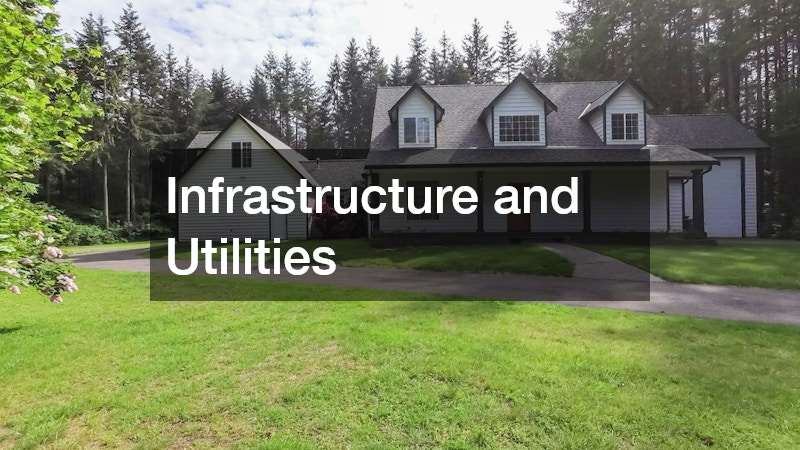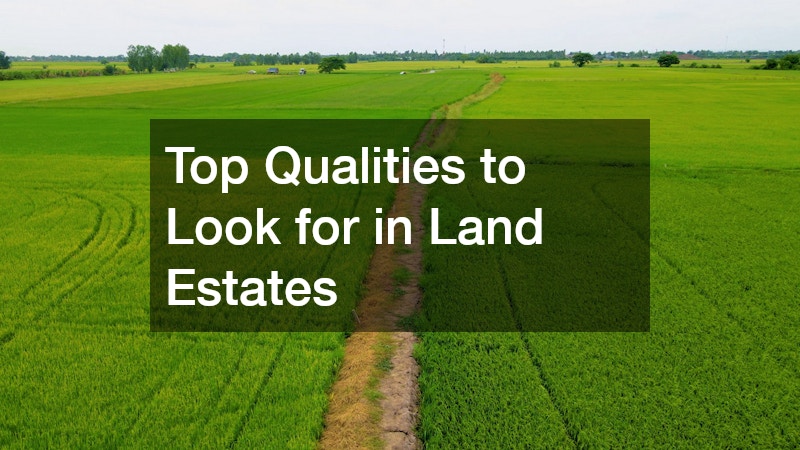Finding the ideal land estate can be a challenging process. With a range of factors to weigh, it is important to recognise the qualities that contribute to a desirable property. This discussion outlines the key features to consider when assessing land estates, providing a structured guide for prospective purchasers.
Location Factors to Prioritise
Accessibility and transport
Accessibility remains one of the most significant considerations when evaluating an estate. Convenient access to arterial roads and transport networks enhances connectivity and day-to-day living.
Proximity to public transport services, including bus routes and train stations, not only supports convenience but also promotes more sustainable living practices. In growing regions, well-developed transport links often drive property value increases. Buyers should evaluate both current infrastructure and planned future projects.
Proximity to amenities
Being located near essential services, such as schools, health facilities, and retail precincts, is crucial for maintaining a comfortable lifestyle. These amenities reduce travel time and contribute to overall convenience. Lifestyle features, including parks, recreational centres, and cultural venues, add further value by making communities more attractive to families and individuals alike. Assessing both current and planned amenities provides insight into the estate’s long-term desirability and potential appreciation.
Assessing Land Value and Investment Potential
Market trends and development prospects
Understanding historical market performance and monitoring projected trends assists in evaluating the investment potential of land estates. Anticipated development, such as business hubs or transport upgrades, can significantly influence future value. Consulting property professionals or using data-driven analysis offers more reliable projections to guide investment choices.
Comparative land value analysis
A comparative analysis of recent property sales in the area provides a benchmark for determining fair value. Examining price per square metre highlights whether an estate is competitively priced or overvalued. Independent appraisal services can provide objective valuations, supporting purchasers in aligning their investment with financial goals and prevailing market conditions.
Environmental and Sustainability Considerations
Ecological impact assessment
Evaluating the environmental footprint of a land estate contributes to sustainable purchasing decisions. Ecological impact assessments examine biodiversity, resource usage, and environmental resilience. Estates with minimal environmental disruption and features such as natural green spaces or watercourses are increasingly sought after. These elements enhance liveability and strengthen the ecological value of the property.
Green certifications and initiatives
Green certifications often reflect adherence to rigorous sustainability standards. Estates that integrate renewable energy initiatives or other environmentally conscious measures appeal strongly to buyers seeking long-term value. Such investments may provide both economic advantages, such as reduced energy costs, and regulatory benefits in line with environmental policy directions.
Legal and Zoning Considerations
Zoning regulations
Awareness of zoning laws is essential for avoiding complications. These laws establish whether land can be used for residential, commercial, or industrial purposes. Buyers must confirm that intended uses align with existing zoning. Consulting planning authorities or property lawyers helps clarify permissible developments and reduces risks.
Property deeds and titles
Clear and undisputed property titles safeguard secure ownership. Reviewing deeds and titles reveals ownership history and highlights any restrictions, such as easements or liens. Legal professionals should review documentation to ensure accuracy and protect purchasers from disputes. Secure titles provide confidence in future property transfers and reduce potential legal complications.
Infrastructure and Utilities
Infrastructure quality
Infrastructure, including roads, drainage, and community facilities, underpins an estate’s development potential. Well-maintained infrastructure increases property attractiveness and supports sustainable growth. Prospective buyers should examine both current infrastructure and proposed upgrades to understand future opportunities and challenges.
Availability of essential utilities
Access to reliable utilities such as water, electricity, and broadband is essential for contemporary living. Properties lacking these connections may require costly installations, which can affect investment value. Reviewing existing utility services, along with future provision plans, ensures that the property remains viable and appealing in the long term.
Purchasing land is a decision that requires careful evaluation across multiple dimensions. Location, value, sustainability, legal compliance, and infrastructure all contribute to the overall suitability of an estate. By approaching the process with attention to both current conditions and future developments, prospective buyers can make informed decisions that balance lifestyle aspirations with sound investment strategies.




